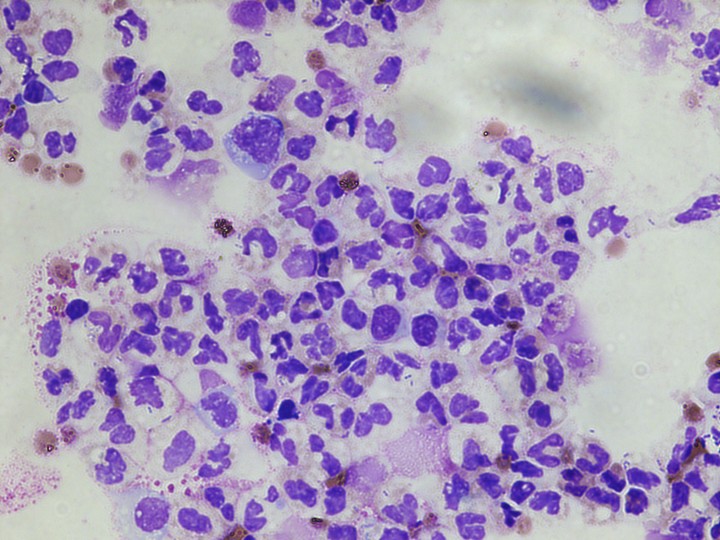
UC researcher develops at-home diagnostic test for endometriosis
Expert's story featured in overseas publication
Katherine Burns, PhD, has been suffering from endometriosis, an often painful, chronic condition, since childhood.
Currently, the University of Cincinnati College of Medicine associate professor and director of the Division of Environmental Genetics and Molecular Toxicology in the Department of Environmental and Public Health Sciences works in her faculty research lab studying the development of endometriosis.
Burns has created a non-invasive diagnostic test that can be used in the comfort of one’s home.
As she recently told Happiest Health based in India, Burns has suffered from the condition since she was about 11 — but did not get it diagnosed until her 20s. She had to visit several doctors and wait for a decade for an endometriosis diagnosis.
Endometriosis is a condition in which tissue similar to the endometrium (lining of the uterus) grows outside of the uterus. It can cause debilitating pain and can even potentially lead to infertility. Diagnosis of the condition is often delayed.
Surgical procedures are currently used to diagnose endometriosis, but the Burns Lab has developed a non-invasive diagnostic test that collects menstrual fluid for analysis.
“By looking specifically at the immune cells in menstrual fluid, we were able to physiologically and morphologically find stark differences in the cells in women with endometriosis compared to healthy women,” said Burns.
Several women who suffer from the condition donated their menstrual fluid for the lab’s research.
“They show that there are specific phenotypes and sub-populations of cells in the menstrual fluid of women with endometriosis that are different from healthy women," said Burns.
Featured image at top: Menstrual fluid under a microscope. Photo/Provided by Burns Lab.
Related Stories
Phenols, found in many products, could upset heart's rhythms
October 7, 2024
Chemicals called environmental phenols include food preservatives, plastics ingredients such as BPA and the parabens in shampoos, so they are ubiquitous in everyday life. Now, University of Cincinnati research suggests that higher exposure to phenols might trigger changes in the heart's electrical system and rhythms.
U.S. News & World Report: Metformin may help young patients with bipolar disorder avoid weight gain
October 31, 2023
U.S. News & World Report highlighted recent research led by the University of Cincinnati and Northwell Health that found the drug metformin can help prevent or reduce weight gain in youth taking medication to treat bipolar disorder.
Millions of kids in Africa are likely suffering from asthma without getting treatment
December 13, 2024
A study shows that one in eight children in several African countries have asthma, and the vast majority are undiagnosed and therefore untreated. Tesfaye Mersha, PhD, studies asthma at the University of Cincinnati College of Medicine. He says the disease has been a growing issue in Africa during the last three decades, and it's linked to climate change and lifestyle changes.
